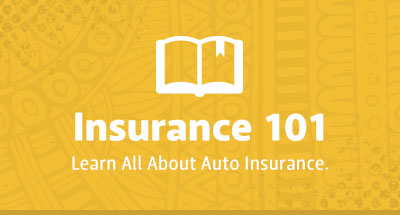Why Refinance a Car Loan?

When you’ve gone through the process of getting a car loan, it can be tempting to pay it off and never look back. Before you do so, you may want to consider the potential benefits of refinancing your auto loan.
Oftentimes, individuals choose to refinance their auto loans because they have found a lower interest rate, giving them the option for a more appealing monthly payment. However, there are times when refinancing would make sense. Here are five different situations to look out for if you are interested in refinancing your auto loan.
Scenario 1: Interest rates begin to drop
Interest rates on consumer loans periodically rise and fall. This occurrence is influenced largely by the monetary policies of the Federal Reserve. When rates drop, be ready to take advantage of this excellent opportunity.
Scenario 2: You want to improve on a “dealer-sourced” loan
If you financed your automobile through a dealership, you likely received a higher interest rate due to dealer markup. Dealers can earn big profits by connecting buyers to captive lenders they are partnered with. Compare your current loan with offers from other sources such as your bank, credit union, or an online lender to see if you can get a lower interest rate.
Scenario 3: Your credit score has improved
All those months of diligently paying off your current loan can have a positive effect on your overall creditworthiness. Lenders see a good credit score as a sign of a less risky borrower, which can lead to better interest rates. If your score has improved since you took out the original loan, you may be able to save money through refinancing. To monitor your credit score, visit Credit Karma.
Scenario 4: You want to buy the car you’re currently leasing
Auto leases typically include an option to buy at the end of the term. You can get a refinance loan to buy the vehicle outright when the contract expires. If you want to save money on a lease-to-purchase, you’ll need to make sure that the total cost of buying the car, including the interest on your refinance loan, would be lower than extending the current contract or leasing a different automobile.
Scenario 5: You need lower monthly payments
If you run into financial trouble and want to reduce your car payment, you could refinance a loan with a longer-term, such as 36 months to 48 months. Although you’ll pay less per month, expect to pay more overall since the life of the loan is longer.
How To Refinance a Car Loan

Refinancing an auto loan is far easier than refinancing a mortgage. Thankfully, it is a much simpler process and can save you thousands of dollars in interest. Another bonus is that you may be able to pay off your car in less time. If you’re considering refinancing your automobile, then you’ve come to the right place. Here’s a step-by-step guide that will show you how to refinance your auto loan.
- Check your credit: To qualify for the best interest rates, you will need to have a good credit history and score. A score over 660 is a great start, but if you want the best rates to aim for a score above 740.
- Before you start the refinancing process, make sure you check your credit history to ensure there aren’t any errors such as identity, account, or balance mistakes. You can review your credit report for free once every 12 months at AnnualCreditReport.com.
- Estimate your car’s loan-to-value ratio: You can start by taking a look at your last auto loan bill and determine the current balance on your loan. Then, you can use an online tool like Kelly Blue Book to estimate your vehicle’s fair market value.
- Apply to multiple lenders: Giving yourself options allows you to compare and contrast various interest rates. You can use an auto loan refinance calculator to see how different rates and terms will affect your monthly payment.
- Beware of prepayment penalties: When it comes to your auto loan contract, make sure to check for any prepayment penalties. These are fees that some lenders may charge if you pay off your loan earlier than the terms agreed upon signing your purchase contract.
- Determine your vehicles’ qualifications: Each bank has its qualification requirements; therefore, you’ll want to make sure you meet all of their refinancing conditions. For example, some lenders won’t allow a refinance on cars over eight years old or with more than 100,000 miles.
- Understand when your loan is set to expire: It is important to look into your documents to see how far along you are into your car loan. For example, if you have a year or two remaining, you may be better off just sticking with the terms of your original loan.
- Obtain proper documentation: If you determine that refinancing your auto loan is the right move for you, you will need to collect the correct documentation for the lenders. Here's a list of the most common types of documents you’ll need to track down:
- Car information like the title, VIN number, current mileage, proof of insurance, and registration.
- Loan information such as your current balance and lender’s name.
- Income information related to your pay stubs and tax returns from the last two to three years. Lenders want to know if you’ll be able to repay your loan.
- Personal information, such as your driver’s license and social security number.
After you’ve gathered all the necessary information and are ready to make an informed decision, you can begin the process of shopping around for the best loan on the market.
Pros and Cons of Refinancing a Car Loan

By now, you can see that refinancing a loan is a major decision. Learn about the pros and cons of refinancing so that you have all the information you need to go through the process.
Pros for Refinancing:
- Obtain a Better Rate: By refinancing your auto loan, you may qualify for a lower interest rate. Lowering your payment by a percentage point or two can make a difference in your wallet and save you money in the long run.
- Lower Your Overall Payments: Refinancing can help you in various ways. First, if you secure a lower interest rate, your monthly payment could be less. Second, you may have the option to extend the term of the loan. However, it’s important to keep in mind that extending the term may increase the total amount of money you would have to pay back.
- Discover a Cash-Out Option: If your car is currently worth more than what you owe on your current loan, you can have the option to be approved for a cash-out refinance loan. These types of loans help you refinance and also borrow some extra money depending on how much equity you have in the vehicle. The funds can be used to pay off other personal debts or simply to have additional money in your pocket.
Cons for Refinancing:
- Be Aware of the Associated Fees: When you are refinancing your auto loan, there may be a variety of fees associated with the process, such as transfer, exit, or upfront fees. However, not all lenders charge the same fees, and some may not charge any at all. When you are researching your refinance options, be sure to ask what fees you would have to pay. In the end, spending too much to transfer your loan could cost you more than staying put.
- Paying More Than You Would Like: Oftentimes, we think getting a lower interest rate can save you money; however, if you extend the term of the loan, you may end up paying more interest over its lifetime.
Comparing the advantages and disadvantages when it comes to refinancing your car loan can help you make an informed decision. If you already have an auto loan for your current vehicle, it may not hurt to look around to see if something better is out there.
Refinancing with Bad Credit

We understand not everyone has the perfect credit score, and that shouldn’t be a determining factor when refinancing an auto loan. Therefore, it is important to understand what options are available when you want to refinance an auto loan with bad credit.
Certain lenders specialize in providing auto loan refinancing for those who have bad credit.
- Find a cosigner: If you are not able to refinance your auto loan because of a poor credit score, then you can try to find a cosigner with a better credit score. In a nutshell, a cosigner is someone who guarantees that they will be legally responsible for paying back a debt if the borrower cannot pay. A cosigner’s participation may be the extra push that's needed for you to get approved.
- Work with your lender: If you’ve made a series of on-time payments, your credit score has improved, or your interest rates have decreased, your current lender may be willing to modify your loan to keep your business. You can always point to your on-time payment history to argue that you’re a lower risk borrower.
- Shop around for the best option: Remember to compare all aspects of a loan when refinancing. It’s important to note that you may be better off applying with lenders who have a history of working with borrowers with bad credit.
Whether you are approved or denied, you should continue taking steps to improve your credit score further. For example, if you can afford your payments but can't qualify for refinancing, make your auto loan payment a priority and set a six-month goal to improve your credit. Then, you can reapply. Making on-time payments is essential to qualify for refinancing in the future.
If you are struggling with your monthly payments, we suggest contacting your lender right away. A representative may be able to offer you options such as lengthening the term of the loan. Increasing the duration of your loan can help you prevent a negative impact on your credit score from missing monthly payments.
Always Consider Your Options

Refinancing your car loan can potentially save you money each year, as well as over the lifetime of the loan. As you learn more about the pros and cons of refinancing and how it applies to your current financial situation, take the time to decide if it’s the right step for you.
We know saving money is a priority these days, and refinancing your auto loan can help you do just that. Here at Access, we can take it a step further by helping you save even more by obtaining affordable auto insurance. In the meantime, it is important to have the appropriate car insurance to keep you and your family safe. If you are ready to take the next step to safeguard your vehicle, you can secure a FREE online quote. You can also learn more about our comprehensive auto insurance plans by calling us directly at 888-449-0171 or by exploring our website.







